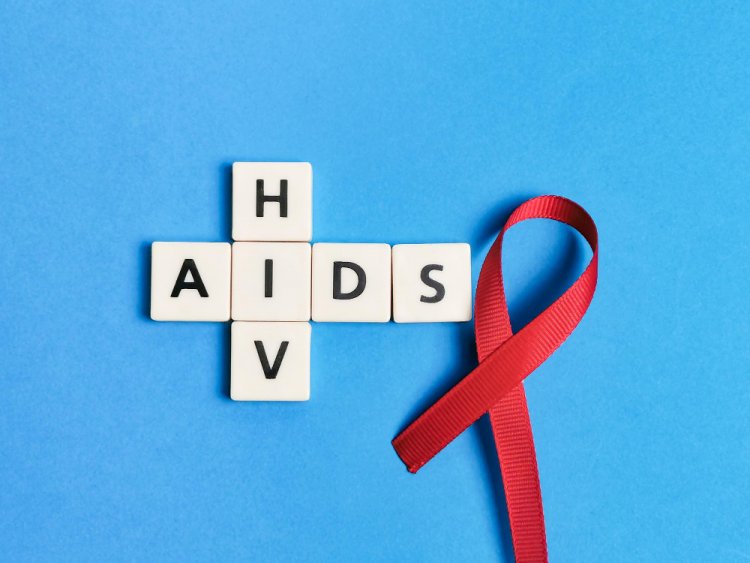From Diagnosis to Treatment: Navigating the Journey of HIV/AIDS
HIV (Human Immunodeficiency Virus) is a virus that attacks the immune system, specifically targeting CD4 cells, which are crucial for the body's defense against infections. Over time, HIV can lead to AIDS (Acquired Immunodeficiency Syndrome), a condition in which the immune system is severely weakened, making individuals vulnerable to various opportunistic infections and diseases. Despite advances in treatment, HIV/AIDS remains a significant global health concern, affecting millions of people worldwide.

Symptoms of HIV/AIDS
Early Stage HIV
- Flu-like symptoms: Fever, headache, fatigue, and swollen lymph nodes may occur within 2-4 weeks after contracting the virus.
- Rash: A rash may develop on the body, typically on the chest, abdomen, face, and hands.
Asymptomatic Stage
- After the initial symptoms, HIV may not cause any noticeable symptoms for years, although the virus is still active and replicating in the body.
Advanced HIV/AIDS
- Persistent fever
- Night sweats
- Fatigue
- Rapid weight loss
- Chronic diarrhea
- Swollen lymph nodes
- White spots or unusual lesions in the mouth
- Recurrent infections
- Neurological symptoms: Memory loss, confusion, and neurological disorders in advanced stages
Diagnosis
HIV Testing
- Antibody Tests: Blood or saliva tests detect antibodies produced by the immune system in response to HIV.
- Antigen Tests: Detect HIV antigens, proteins produced by the virus itself, in the blood.
- Nucleic Acid Tests: Detect HIV RNA or DNA in the blood, providing early detection.
Stages of HIV Infection
- Stage 1 (Acute HIV Infection): Initial period after infection, characterized by high viral load and rapid CD4 cell depletion.
- Stage 2 (Clinical Latency): Asymptomatic stage with low viral load and slow progression of the disease.
- Stage 3 (AIDS): Immune system severely damaged, leading to opportunistic infections and AIDS-defining illnesses.
Treatment
Antiretroviral Therapy (ART)
- Combination Therapy: Involves the use of multiple antiretroviral drugs to target different stages of the HIV replication cycle.
- Goals: Suppress viral load, maintain or restore immune function, prevent transmission, and improve quality of life.
- Types of ART: Include nucleoside reverse transcriptase inhibitors (NRTIs), non-nucleoside reverse transcriptase inhibitors (NNRTIs), protease inhibitors (PIs), integrase inhibitors, and entry inhibitors.
Pre-exposure Prophylaxis (PrEP)
- Preventive Approach: Involves taking antiretroviral medications before potential exposure to HIV to reduce the risk of infection.
- Recommended for: Individuals at high risk of HIV infection.
Post-exposure Prophylaxis (PEP)
- Emergency Treatment: Involves taking antiretroviral medications within 72 hours of potential exposure to HIV to reduce the risk of infection.
- Recommended for: Individuals who have been potentially exposed to HIV.
Supportive Care
- Management of Opportunistic Infections: Treatment and prevention of infections such as tuberculosis, pneumonia, and cryptococcal meningitis.
- Psychosocial Support: Counseling, mental health services, and support groups to address emotional and social aspects of living with HIV/AIDS.
HIV/AIDS continues to be a major global health challenge, affecting individuals, families, and communities worldwide. Early diagnosis, access to treatment, and preventive measures such as PrEP and PEP are crucial in controlling the spread of the virus and improving the quality of life for people living with HIV/AIDS. Ongoing research and efforts to combat stigma, promote awareness, and ensure equitable access to healthcare are essential in the fight against HIV/AIDS.
Remember, education, awareness, and compassion are powerful tools in the fight against HIV/AIDS.
#HIV #AIDS #Healthcare #GlobalHealth #HIVSymptoms #AIDSSymptoms #FluLikeSymptoms #Rash #AdvancedHIV #HIVTesting #AntibodyTests #AntigenTests #NucleicAcidTests #StagesofHIV #AntiretroviralTherapy #ART #PrEP #PEP #SupportiveCare #HIVTreatment #HIVAwareness #EndStigma #HealthEducation #CompassionInHealthcare #GlobalHealth #HIVPrevention #HealthcareGoals #EarlyHIVSymptoms #HIVDiagnosticTests #ARTEffectiveness #PrEPBenefits #PEPGuidelines #HIVStigma #SupportForHIVPatients
Disclaimer:
The information provided in this article is for educational purposes only and should not be considered medical advice. If you have any health concerns or are experiencing symptoms, it is important to consult with a healthcare professional, such as a doctor or clinic, for proper diagnosis and treatment. Always seek the advice of your doctor or other qualified health provider with any questions you may have regarding a medical condition. Do not disregard professional medical advice or delay in seeking it because of something you have read in this article.
What's Your Reaction?





















